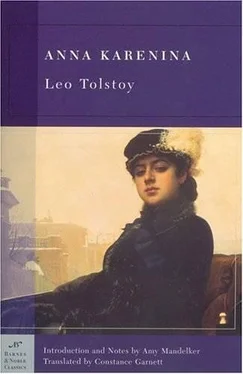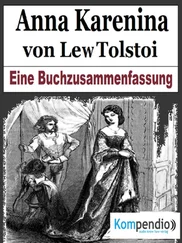Whether he were acting rightly or wrongly he did not know, and far from trying to prove which it was nowadays he avoided all thought or talk about it.
Reasoning had brought him to doubt, and prevented him from seeing what he ought to do and what he ought not. When he did not think, but simply lived, he was continually aware of the presence of an infallible judge in his soul, determining which of two possible courses of action was the better and which was the worse; and as soon as he did not act rightly, he was at once aware of it.
So he lived, not knowing and not seeing any chance of knowing what he was and what he was living for, and harassed at this lack of knowledge to such a point that he was afraid of suicide, and yet firmly laying down his own individual definite path in life.
The day on which Sergei Ivanovich came to Pokrovskoe was one of Levin's most painful days.
It was the very busiest working time, when all the peasantry show an extraordinary intensity of self-sacrifice in labor, such as is not to be found in any other conditions of life and would be highly esteemed if the men who showed these qualities themselves thought highly of them, and if it were not repeated every year, and if the results of this intense labor were not so simple.
To reap and bind and cart off the rye and oats; to mow the meadows, turn over the fallows, thresh the seed and sow the winter corn- all this seems so simple and ordinary; but to succeed in getting through it all everyone in the village, from the old man to the young child, must toil incessantly for three or four weeks, three times as hard as usual, living on kvass, onions, and black bread, threshing and carrying the sheaves at night, and not giving more than two or three hours in the twenty-four to sleep. And every year this is done all over Russia.
Having lived the greater part of his life in the country and in the closest relations with the peasants, Levin always felt in this busy time that he was infected by this general quickening of energy in the people.
In the early morning he rode over to the first sowing of the rye, and to the oats, which were being carried to the stacks, and, returning home at the time his wife and sister-in-law were getting up, he drank coffee with them and walked to the grange, where a new threshing machine was to be set working to get ready the seed.
All this day Levin, while talking with the bailiff and the peasants, and, at home, with his wife, and Dolly, and her children, and his father-in-law, kept on thinking of one thing, and one thing only- that which at this time engrossed him most outside of the cares of his estate; and in everything he sought a relation to his questioning: "What am I, then? And where am I? And why am I here?"
He was standing in the cool threshing barn, still fragrant with the leaves of the hazel branches interlaced on the freshly peeled aspen beams of the new thatch roof. He gazed through the open door in which the dry bitter chaff dust swirled and played; at the grass of the threshing floor in the sunlight and the fresh straw that had been brought in from the barn; then at the speckly-headed, white-breasted swallows that flew chirping in under the roof and, fluttering their wings, settled in the crevices of the doorway; then at the peasants bustling in the dark, dusty barn, and he thought strange thoughts.
"Why is all this being done?" he thought. "Why am I standing here, making them work? What are they all so busy for, trying to show their zeal before me? For what reason is old Matriona, my old friend, toiling? (I doctored her, when the beam fell on her in the fire)," he thought, looking at a thin old woman who was raking up the grain, moving painfully with her bare, sun-blackened feet over the uneven, rough floor. "Then she recovered, but today or tomorrow or in ten years she won't; they'll bury her, and nothing will be left either of her or of that dashing woman in the red skirt, who with that skillful, gentle action is shaking the ears out of their husks. They'll bury her, as well as this piebald gelding, and very soon too," he thought, gazing at the heavily moving, panting horse that kept walking up the treadwheel that turned under him. "And they will bury her, and Fiodor the thresher with his curly beard full of chaff, and his shirt torn on his white shoulders- they will bury him. He's untying the sheaves, and giving orders, and shouting to the women, and quickly setting straight the strap on the moving wheel. And what's more, it's not them alone- they'll bury me too, and nothing will be left. What for? "
He thought this, and at the same time looked at his watch to reckon how much they threshed in an hour. He wanted to know this so as to judge by it the task to set for the day.
"It'll soon be one, and they're only beginning the third sheaf," thought Levin. He went up to the man who was feeding the machine, and shouting over the roar of the machine, he told him to feed it more slowly.
"You put in too much at a time, Fiodor. Do you see- it gets choked, that's why it isn't getting on. Do it evenly."
Fiodor, black with the dust that clung to his moist face, shouted something in response, but still went on doing as Levin did not want him to.
Levin, going up to the machine, moved Fiodor aside, and began feeding the machine himself.
Working on till the peasants' dinner hour, which was not long in coming, he went out of the barn with Fiodor and fell into talk with him, stopping beside a neat yellow sheaf of rye laid on the threshing floor for seed.
Fiodor came from a village at some distance from the one in which Levin had once allotted land to his co-operative association. Now it had been let to the innkeeper.
Levin talked to Fiodor about this land and asked whether Platon, a well-to-do peasant of good character belonging to the same village, would not take the land for the coming year.
"It's a high rent; it wouldn't pay Platon, Konstantin Dmitrich," answered the peasant, picking the ears off his sweat-drenched shirt.
"But how does Kirillov make it pay?"
"Mitukha!" (So the peasant called the innkeeper in a tone of contempt.) "You may be sure he'll make it pay, Konstantin Dmitrich! He'll get his share, however he has to squeeze to get it! He's no mercy on a peasant. But Uncle Fokanich" (so he called the old peasant Platon)- "do you suppose he'd flay the skin off a man? Where there's debt, he'll let anyone off. And he'll suffer losses. He's human, too."
"But why will he let anyone off?"
"Oh, well, of course, folks are different. One man lives for his own wants and nothing else, like Mitukha, thinking only of filling his belly; but Fokanich is a righteous old man. He lives for his soul. He does not forget God."
"How does he think of God? How does he live for his soul?" Levin almost shouted.
"Why, to be sure, in truth, in God's way. Folks are different. Take you, now- you wouldn't wrong a man…"
"Yes, yes- good-by!" said Levin, breathless with excitement, and turning round he took his stick and walked quickly away toward home. At the peasant's words that Fokanich lived for his soul, in truth, in God's way, undefined but significant ideas seemed to burst forth, as though they had been locked up, and, all of them striving toward one goal, they thronged whirling through his head, blinding him with their light.
Levin strode along the highroad, absorbed not so much in his thoughts (he could not yet disentangle them), as in his spiritual condition, unlike anything he had experienced before.
The words uttered by the peasant had acted on his soul like an electric shock, suddenly transforming and combining into a single whole the whole swarm of disjointed, impotent, separate thoughts that incessantly occupied his mind. These thoughts had unconsciously been in his mind even when he was talking about the land.
Читать дальше












